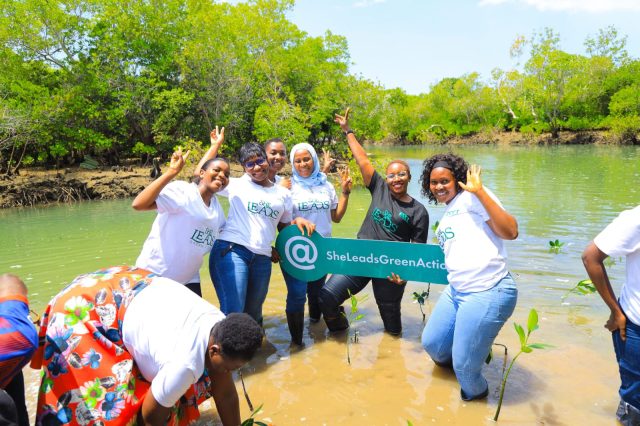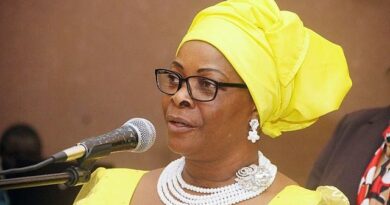Youth and Women Lead Tanzania’s Climate Fight Where Policy Falls Short
Where policy falters, young people and women in Tanzania are stepping up to lead inclusive climate action, bridging gaps left by national strategies and reshaping local governance through grassroots innovation.
In Shinyanga, 26-year-old Edina Evodius has become a community leader after training with Youth and Women Emancipation (YAWE). Once dismissed for her age and gender, she now heads environmental education projects, tree-planting campaigns, and advocates for youth-inclusive policies in development planning. “Before YAWE’s training, I never imagined someone like me could speak at a village assembly. Now, I sit at the table. They listen,” she said.
Evodious’s journey reflects a broader shift across Tanzania, where women and young people are carving out space in climate leadership despite systemic barriers. With 77 per cent of the population under 35, youth are the majority, yet often excluded from decision-making. Meanwhile, women—who globally account for 80 per cent of food production and nearly 80 per cent of those displaced by climate-related disasters—remain sidelined in formal structures.
Tanzania ranks 147th out of 187 countries on the Notre Dame Global Adaptation Initiative (ND-GAIN) Index, leaving it highly vulnerable to droughts and floods that threaten its rain-fed agriculture. Although the National Climate Change Strategy (2021–2026) outlines adaptation goals, critics say it provides little clarity on integrating women and youth into implementation.
Civil society organisations are filling these gaps. Lucky Michael, Founder of the Environmental Conservation Community of Tanzania (ECCT), said: “Tanzania’s age structure is both a reality and a call to action. With the majority of our population under 30, everything we do at ECCT is grounded in the understanding that youth are not a side note, they are the centre of our climate future.”
Through initiatives such as EcoWear, ECCT empowers young women “Eco Warriors” to upcycle textile waste into sustainable fashion, simultaneously driving climate advocacy and economic resilience. Its She Leads Green programme has also seen alumni transform rooftops into urban gardens and launch grassroots waste management projects.
Climate Hub Tanzania, co-founded by environmental specialist Laurel Kivuyo, integrates indigenous knowledge with policy-making. Raised as a Maasai girl in Arusha, Kivuyo now champions the inclusion of marginalised groups in climate governance. “When we launched Climate Hub Tanzania in 2021, we identified a critical gap in the climate ecosystem—there were very few spaces that meaningfully centred youth and women as leaders in climate action,” she explained.
Graduates of the hub’s climate literacy initiatives include Naomi Koinase, who founded the Omom Maasai Community Foundation, and Edward Jacob, who leads the Kilimo Sustainable Initiative, applying climate-smart farming to improve smallholder food security.
YAWE, meanwhile, is training young leaders to link climate science with daily realities, fostering confidence and entrepreneurial skills while addressing structural inequalities that disadvantage women. Executive Director Vicent Laurent emphasised that this gender-transformative approach is vital: “YAWE addresses the double disadvantage young women face by challenging restrictive norms and expanding opportunities.”
Despite progress, systemic barriers persist, including limited access to capital, undervaluing of women’s leadership, and weak policy frameworks. Laurent noted: “There is widespread lack of awareness among young people about existing local, national, and international climate change frameworks, and how they can influence or contribute to them. This combination of limited funding, weak structures, and low awareness presents a major challenge.”
Yet tangible change is evident. In Shinyanga, YAWE-trained leaders now hold seats on natural resource governance committees, once closed to youth. They are invited to speak at community planning meetings, advocating for sustainable land use and climate adaptation.
Since 2023, Climate KIC has supported these organisations through long-term partnerships, focusing on skills development and leadership training. For Kivuyo, the next step must be structural reform: “What we need are national-level youth funding streams, alongside simplified application systems and policies that formally recognise youth- and women-led initiatives as critical to climate governance.”
Investing in these leaders, advocates say, is not charity but strategy. Michael added: “Their leadership gives me confidence that Tanzania’s future is in capable hands.”
As youth and women continue to push for recognition, the message is clear: they are not afterthoughts in climate action. They are its foundation—and its future.



